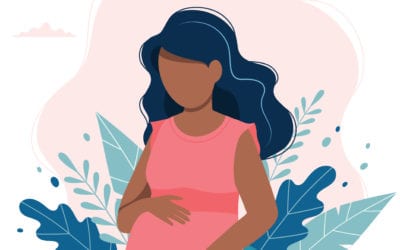Chanel Jones almost died. Twice.
Chanel was pregnant as a college junior living and studying in Staten Island. Her family moved away when she graduated high school, and she only had a few friends from college to support her. They’d made plans to have a natural birth, but Chanel carried an extra two weeks and ended up having an emergency C-section.
For three days after the surgery, none of the medical professionals who were supposed to care for her noticed that Chanel was constantly adjusting the temperature in her room, one second too hot, another too cold. She was discharged three hours before it was safe for her to leave medical supervision and ended up back at the hospital—three hours after her discharge time—with a low-grade fever and a double lung infection of pneumonia and sepsis, a potentially life-threatening condition.
There was one night she wasn’t sure she’d survive the infection because of the lack of care from her doctors during her recovery in the hospital. She had white-coat syndrome, which is when people have a traumatic experience in a medical setting and every time they see a “white coat” their blood pressure goes up.
“I basically had to advocate for myself, because I’m like, ‘If I don’t get out of this, I’m going to die. My blood pressure is not going to get better, because I’m clearly traumatized. And I just need to be home with my newborn baby,’” Chanel told her doctor.
Now, Chanel sees how her experience as a Black woman differed from that of other new mothers. The disproportionate statistics associated with the birthing experiences of Black women compared to other races is stark.
Black non-Latinx women are three times more likely to face life-threatening complications from delivery than White non-Latinx women. Compared to non-Latinx White infants, the mortality rate for Black infants is three times higher and one and a half times higher for Latinx infants.
“I became a doula to help fight for people experiencing what I’ve been through… and to help shine a light on the importance of maternal mental health,” Chanel said.
“People shouldn’t suffer in silence.”

